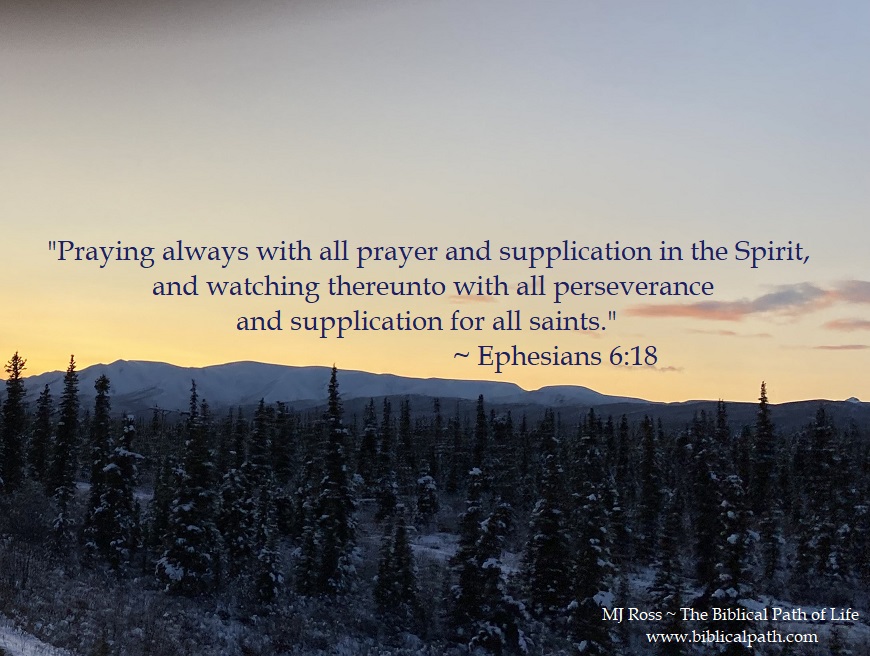
“Praying always with all prayer and supplication in the Spirit, and watching thereunto with all perseverance and supplication for all saints.”
Ephesians 6:18
Zerubbabel was a man who lived in Babylon during the time of the captivity of Israel. He had the opportunity to take a group of Israelites back to their homeland, by the decree of Cyrus the Persian. Zerubbabel must have understood the importance of returning to the land of Israel, especially the city of Jerusalem. “And the vessels also of gold and silver of the house of God, which Nebuchadnezzar took out of the temple that was in Jerusalem, and brought them into the temple of Babylon, those did Cyrus the king take out of the temple of Babylon, and they were delivered unto one, whose name was Sheshbazzar, whom he had made governor” (Ezra 5:14). Cyrus sent with them much of the treasure that had been taken when Nebuchadnezzar conquered Jerusalem. They returned to rebuild the Temple in Jerusalem. Zerubbabel did not only lead the people safely back to Jerusalem, but he led in the rebuilding of God’s Temple. Take note that Zerubbabel is known as Sheshbazzar to Cyrus the king. “Then came the same Sheshbazzar, and laid the foundation of the house of God which is in Jerusalem: and since that time even until now hath it been in building, and yet it is not finished” (Ezra 5:16). See how this is confirmed in Zechariah: “The hands of Zerubbabel have laid the foundation of this house; his hands shall also finish it; and thou shalt know that the LORD of hosts hath sent me unto you” (Zechariah 4:9). All would know that the Lord of hosts sent Zerubbabel.
Zerubbabel was one who could never be a king (even though he was in the kingly lineage), yet this did not stop him from wanting to help God’s people return to their homeland. He became all he could be, a great leader, for God and His people. He also became the governor of God’s people. But more that that, he helped rebuild the Temple of the Lord. Because Zerubbabel was faithful, much was accomplished under his authority.
The second group that returned (many years later), was led by Ezra. He was a priest living among the remaining captives in the land of Babylon. He led a group to Jerusalem. What was his plan once in Jerusalem? “For Ezra had prepared his heart to seek the law of the LORD, and to do it, and to teach in Israel statutes and judgments” (Ezra 7:10). The word prepared means “to be established; to stand firm; to be faithful; to be reliable; to be ready and prepared; to be determined; especially to be sure to bring something into an indisputable existence.” Ezra was on a mission. Not only was he going to know the Law of the Lord, and do it in his life, but also he would teach that Law in Israel to God’s people – making sure they lived according to God’s Words. This was an important. Ezra became a great leader in Jerusalem, and taught the people to live according to God’s Word. “This Ezra went up from Babylon; and he was a ready scribe in the law of Moses, which the LORD God of Israel had given: and the king granted him all his request, according to the hand of the LORD his God upon him” (Ezra 7:6). Many recognized “the hand of the LORD his God upon him.”
A message was delivered to a man named Nehemiah declaring that the walls were broken and the gates of Jerusalem were burned. He was the cupbearer in King Artaxerxes court. (King Artaxerxes had allowed Ezra to lead a group into Israel. See Ezra 7-8.) When Nehemiah received the message, he immediately prayed. “O Lord, I beseech thee, let now thine ear be attentive to the prayer of thy servant, and to the prayer of thy servants, who desire to fear thy name: and prosper, I pray thee, thy servant this day, and grant him mercy in the sight of this man. For I was the king’s cupbearer” (Nehemiah 1:11). Nehemiah fasted and prayed for four months. After this, the king recognized Nehemiah was troubled and asked what troubled him. Nehemiah was in a unique position as the king’s cupbearer, for he was often in the king’s presence. Nehemiah told the king his heart’s desire – to return to the city of Jerusalem and rebuild the walls and gates. Not only did the king send him, but gave him many supplies.
God had placed a burden in Nehemiah’s heart to rebuild the broken walls of Jerusalem. Moreover, Nehemiah responded to that call, after much prayer. With that prayer, we found he had great insight in recognizing the hand of the enemies as they tried, often, to thwart God’s plans. It saved his life many times. Not only that, but by Nehemiah’s leadership, the people prayed for God’s help. God helped them, and the enemies recognized that the walls were built by God’s hand. Even with oppositions, they completed the wall in fifty-two days! There is a verse that we too, can remember. “Praying always with all prayer and supplication in the Spirit, and watching thereunto with all perseverance and supplication for all saints” (Ephesians 6:18). Not only did Nehemiah pray for God to work in his personal life, but in the lives of God’s people.
Have you prayed, recognizing a place God has for you to serve Him today?



